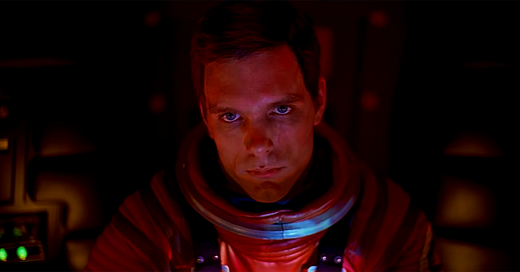Is this really what the AI revolution looks like?
The limitless potential of AI is being hampered by the small-minded gadgetry of today’s techpreneurs.
The single greatest worry I have for AI isn’t that it will eventually rise up and enslave the human race (or merely refuse to open the pod bay doors), but rather that the legions of Steve-Jobs-wannabes in Silicon Valley will wither away its potential on the most trivial and uninspired uses imaginable.
Behold, the unofficial theme of this year’s CES tech convention in Las Vegas!
Now, to be fair, I have no doubts that artificial intelligence will eventually become a revolutionizing technology for the human race. After all, the possibilities for it to change the way we work, recreate, communicate and interact with the world are virtually endless.
However, the incorporation of such revolutionizing technology into washing machines is not exactly the way I pictured this new era of human progress to begin. It feels as if the tech giants in Silicon Valley are a bit more focused on gimmicks and gadgetry than the sort of grandiose disruptions over which they used to obsess.
The AI advancement that stole this year’s show at CES, for example, was only slightly more impressive than a “smart” home appliance.
Fashioning himself as the next technological disruptor, Teenage Engineering CEO Jesse Lyu gave a keynote speech for the launch of a new AI product, “The Rabbit R1.” However, the entire presentation came across as more parody than prophetic.
With an almost unbearable air of self-aggrandizing pride, Lyu slow-rolled the introduction of his new product by first trying to convince us that what we were about to witness was the single greatest leap forward in technological progress since Apple replaced bulky keyboards with sleek full-screen iOs platforms.
And then, there was the introductory video showcasing the product itself:
As someone who loves flashy product videos as much as anyone, the 57 seconds of sweeping camera angles, dramatic feature reveals and macrophotography was certainly impressive — and annoying as all hell given that it failed to even hint at the product’s potential purpose for existing.
As far as marketing material goes, it was among the world’s worst introductory videos. Aside from learning that the Rabbit was some orange cube with a big screen, the video told us virtually nothing about what it does or (most importantly) why anyone would “need” one in their life. Put bluntly, Lyu and Teenage Engineering failed the most basic first step of sales: Tell me what you’re selling! (The second most important rule is “always be closing,” according to Alec Baldwin’s character in Glengarry Glen Ross. However, we’ll save that lesson for another time.)
Unfortunately, the 40-minute keynote that followed was only marginally better. It was so crammed full of techno babble, platitudes and grandiose predictions of the gadget’s life changing capabilities as to leave no room for the sort of storytelling needed to actually make me (or most common people) want to buy one.
At its heart, the Rabbit is a mobile AI assistant — an updated PDA from the last century that acts like a marginally more productive version of Siri. Apparently, the idea is that it will save the user the hassle of having to log into individual apps the way we currently do on our smartphones to accomplish things like hailing an Uber, booking a flight or checking stock prices.
So far, this doesn’t feel like the giant leap forward we were promised; it feels more like an extra hunk of plastic to lug around.
To demonstrate its capability, Lyu asked his little Rabbit several questions during the unveiling — and each left me, the viewer, wondering what universe exists where such cases would possibly be seen as “groundbreaking” or revolutionary by non-tech obsessed members of the general public.
Here’s a taste of what he asked his AI assistant:
Keep reading with a 7-day free trial
Subscribe to Creative Discourse to keep reading this post and get 7 days of free access to the full post archives.





